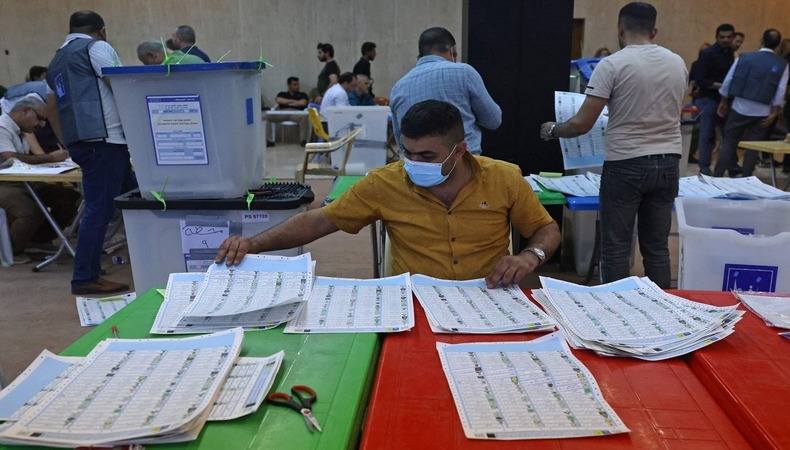Iraq Provincial Elections Draws Flak from Kurds, Shiite Alliance Leads

Iraq held its first provincial election in a decade but drew criticism for the use of Sainte-Lague voting method, single-constituency per province system. This resulted in over 106,000 Kurds votes going to waste. They had been hoping to solidify their Kurdish identity but their parties failed to form a united front.
Preliminary results revealed that the New Generation Movement (NGM), Kirkuk Torch Alliance, and the Kurdistan Socialist Democratic Party (KSDP) failed to secure enough votes, despite the high turnout of voters, for a seat in the council. Around 53,617 Kurdish votes in Kirkuk were wasted.
The Taqadum Alliance, led by Iraq’s former parliament speaker Mohammed al-Halbousi, secured majority of the votes in Baghdad. The party also secured its position in the predominantly Sunni Muslim Anbar province.
Iran-backed Groups Dominant Iraq
The Independent High Electoral Commission said the overall turnout was 41 percent. Results show three electoral lists backed by the ruling Shiite Muslim Coordination Framework leading in most of the provinces.
It includes a list backed by former prime minister Nouri Al-Maliki; a list led by Hadi Al-Amiri’s Badr Organization; and a list including cleric Ammar Al-Hakim and former prime minister Haidar Al-Abadi. In Basra, Iraq’s southern oil-producing province, saw Asaad Al-Edani win with more than 250,000 votes.
Analysts described the election result as an indicator of the balance of power in Iraq where groups close to Iran have steadily gained influence. The election was also a test of the country’s young democracy which was set up by the United States after toppling the Saddam Hussein regime in 2003.
Keep Reading
Afghan Pilot, a ‘True Patriot’, Faces Homelessness in UK
Turkey, Hungary to Enhance Relations with 16 Agreements
Low Turnout for Iraq Election
Officials highlighted the low voter turnout for the Iraq provincial elections. They attributed it to the election boycott call by influential Shiite cleric and political leader Muqtada al-Sadr. He had called his followers to boycott because of the corrupt system.
But this helped his rivals to strengthen their presence and foothold in the provinces as they did in the parliament when he ordered his supporters to resign and withdraw from the political process in 2022.
Sadr told his supporters last month that the election boycott diminishes its legitimacy domestically and internationally. He said it reduces the influence of corrupt individuals in Iraq.




